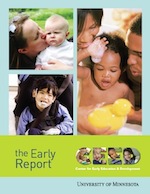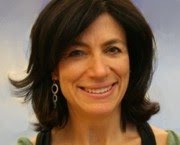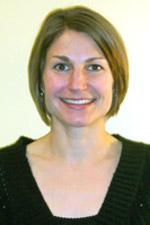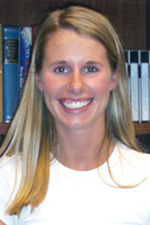 CEED is excited to present the Fall issue of the Early Report: Coordinating Our Systems of Care to Promote the Healthy Development of Young Children.
CEED is excited to present the Fall issue of the Early Report: Coordinating Our Systems of Care to Promote the Healthy Development of Young Children.
This Early Report builds on our partnership with the Center for Advanced Studies in Child Welfare (CASCW) and the McEvoy Lecture held in May of 2012. The report examines the need for improved coordination across Minnesota’s systems of care and explores some of the challenges and successes that Minnesota faces in this effort.
Terrie Rose is guest lecturer for November McEvoy Lecture
 Terrie Rose, founder and CEO of Baby’s Space and CEHD alumna (Ph.D. ’92), presented Educational Stability: What Does it Mean for Young Children? on November 8, 2012, North Star Ballroom, St. Paul Student Center, 12:30 pm to 4:30 pm.
Terrie Rose, founder and CEO of Baby’s Space and CEHD alumna (Ph.D. ’92), presented Educational Stability: What Does it Mean for Young Children? on November 8, 2012, North Star Ballroom, St. Paul Student Center, 12:30 pm to 4:30 pm.
The lecture addressed the question of how can our systems, including early care, education, early intervention, child welfare, and the courts, best support social workers, early care and education providers, families and ultimately children to get the stability of care they need to develop a healthy, secure attachment. And how can programs or systems develop policies that integrate services to best meet the needs of highly mobile children? The lecture also included small group discussions and a panel discussion by practitioners and policymakers focused on these issues.
The McEvoy Lecture was co-sponsored by the Center for Advanced Studies in Child Welfare and funded by the Minnesota Department of Human Services..
Alisha Wackerle-Hollman quoted in Star Tribune article on “academic redshirting”

Alisha Wackerle-Hollman, educational psychologist and research associate at CEED@UROC, is cited in an article in the September 16, 2012 Star Tribune, Too ‘young’ for school?. The article addresses some of the latest research on the issue of “academic redshirting”–delaying a child’s entry into school based on physical, academic, and emotional considerations.
CEED@UROC research assistant Jose Palma’s work highlighted
Jose Palma, an educational psychology doctoral student in quantitative measurement and a research assistant for CEED@UROC, is featured and his work and activities detailed in “Measuring Persistence,” an article on the CEHD home page. Jose’s work at CEED@UROC includes helping analyze Minnesota State Survey results.
CEHD’s Connect Magazine story highlights three federal grants related to early childhood
Read about The Race to the Top, Promise Neighborhoods, and Investing in Innovation federal grants that focus on children at risk and aim to benefit children statewide by building an infrastructure for early education. Connect Magazine, College of Education and Human Development, University of Minnesota, Spring 2012 issue.
CEED staff presented at 2011 Division of Early Childhood Conference
CEED staff presented at the 2011 Division of Early Childhood (DEC) 27th Annual International Conference on Young Children with Special Needs and Their Families in National Harbor, MD November 17-19, 2011. Megan Cox and Christopher Watson presented a poster, Regional, Specialized, Professional Development Systems: Using Data to Expand Resources. Christopher Watson and Shelley Neilsen Gatti presented Transformative Professional Development Tool in Infant Mental Health: Reflective Practice. Scott McConnell, Professor in Educational Psychology, presented Measuring Up: Constructing Progress Monitoring Measures in Early Intervention and Early Childhood Special Education.
2011 Minnesota Round Table on Early Childhood Education
 The 2011 Round Table, Mobiliizing Hope: Using a Developmental Approach in Child Welfare, was held on November 3, 2011, at the Science Museum of Minnesota. Co-sponsored by the Center for Advanced Studies in Child Welfare (CASCW) and Center for Early Education and Development (CEED), video and photos from the event are available on the CEED website.
The 2011 Round Table, Mobiliizing Hope: Using a Developmental Approach in Child Welfare, was held on November 3, 2011, at the Science Museum of Minnesota. Co-sponsored by the Center for Advanced Studies in Child Welfare (CASCW) and Center for Early Education and Development (CEED), video and photos from the event are available on the CEED website.
Susman-Stillman Webinar on The Science of Early Brain Development and Child Development
CEED Co-Director Amy Susman-Stillman presented via webinar The Science of Early Brain Development and Child Development on October 12. Sponsored by the Working Family Resource Center (WFRC) and the Minnesota Department of Education, the webinar can be viewed on the WFRC website.
Former CEED Staff Member Dr. Karen Cadigan New Director of Office of Early Learning
 Dr. Karen Cadigan, who until recently was a research fellow at CEED and policy director of the U of M’s Children, Youth & Family Consortium, is now director of the newly-formed Minnesota Office of Early Learning at the Minnesota Department of Education. The OEL is an innovative management and leadership structure (not a place), which will aim to work across state agencies to improve the system, services, and outcomes for young children and their families. Dr. Cadigan is also the moderator for this year’s CEED Round Table.
Dr. Karen Cadigan, who until recently was a research fellow at CEED and policy director of the U of M’s Children, Youth & Family Consortium, is now director of the newly-formed Minnesota Office of Early Learning at the Minnesota Department of Education. The OEL is an innovative management and leadership structure (not a place), which will aim to work across state agencies to improve the system, services, and outcomes for young children and their families. Dr. Cadigan is also the moderator for this year’s CEED Round Table.
Staff present at Response to Intervention Early Childhood Summit


 Professor Scott McConnell (Educational Psychology), Tracy Bradfield and Alisha Wackerle-Hollman of the Center for Early Education and Development (CEED) presented a session titled Using IGDIs for Identifying Children For Tiered Early Literacy and Language Support at the 3rd Annual RTI Early Childhood Summit, held in Santa Ana Pueblo, New Mexico, September 26-27, 2011. The Summit featured two days of cutting edge research on Response to Intervention (RTI) in early childhood education including empirical evidence for targeted tier two and three intervention, assessment and related instructional decision making, programmatic application, and monitoring and evaluating of student responses to intervention. This event connects with a broad audience to engage in a thought-provoking and fruitful discussion around RTI in early childhood. In addition to the session presentation, Kate Clayton, Tracy Bradfield, Braden Schmitt, and Scott McConnell presented a poster titled The Impact of Instructional Support on Oral Language Development for Preschoolers Living in Poverty.
Professor Scott McConnell (Educational Psychology), Tracy Bradfield and Alisha Wackerle-Hollman of the Center for Early Education and Development (CEED) presented a session titled Using IGDIs for Identifying Children For Tiered Early Literacy and Language Support at the 3rd Annual RTI Early Childhood Summit, held in Santa Ana Pueblo, New Mexico, September 26-27, 2011. The Summit featured two days of cutting edge research on Response to Intervention (RTI) in early childhood education including empirical evidence for targeted tier two and three intervention, assessment and related instructional decision making, programmatic application, and monitoring and evaluating of student responses to intervention. This event connects with a broad audience to engage in a thought-provoking and fruitful discussion around RTI in early childhood. In addition to the session presentation, Kate Clayton, Tracy Bradfield, Braden Schmitt, and Scott McConnell presented a poster titled The Impact of Instructional Support on Oral Language Development for Preschoolers Living in Poverty.
